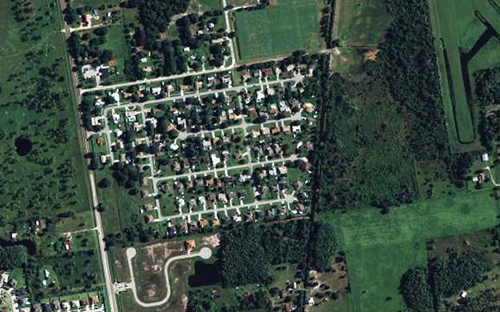When purchasing your next home, some land or a business, it’s always good to have an idea about the zoning codes, laws and ordinances within your county and city. Specific parcels can appear to be the prime place for usage but looks can sometimes be deceiving.
Each jurisdiction at the city and county level will have established zoning regulations to help regulate the development and growth of their community’s needs in different areas. Each area may not be contiguously zoned and will more than likely vary in size. Within these zoning codes are a mix of alphabet and number code abbreviations to explain zoning maps. Each locality will have specific designations for zoning categories that don’t necessarily mean the same thing in the next county over so be sure you ask your local REALTOR® for help before proceeding.

Read the following scenarios to see how “in the zone” you are and how a knowledgeable REALTOR® could have helped:
You’re looking to buy your dream home and come across a home on a quarter acre of land in Osceola County within city limits. The lot size is pretty large so you decide you’re going to claim this little part of the world as your own and decide to create a mini farm. There’s no HOA so you decide to throw in some carrots and cabbage and build a $1000 chicken condo, complete with rooster and hens. What could be better than farm fresh eggs? What do you think happens next?
You call it a day and sip some sweet tea off the new rocking chair you bought for your porch, the Beverly Hillbillies don’t have anything on you. Completely by surprise, you get a letter in mail the from code enforcement a week later because your chickens violate the local zoning ordinance. Why are you getting this? Most homes within city limits have zoning laws that regulate the type and number of animals you can have on your property. Chickens, plural, within city limits was a definite no-no.
A church is looking to start a small congregation by renting a unit in a local retail center. Everyone’s been praying and this place seems ideal for the congregation. This retail center has it all, a space for the church, daycare for the kids, a nail salon, various restaurants, including a local 2COP pizza parlor that everyone hangs out at. The landlord and the church administrators sign a lease and the church starts moving in their pews and hymnals. Now what?
The church is decorated, you have your first Sunday service and everyone heads over to the pizza parlor for lunch. Sounds great, right? Not quite. The church and landlord have now violated city ordinances because although it was not a problem at the county level, some cities restrict having a place of worship within a set number of feet from a place that serves alcohol. 2COP didn’t mean that two cops like to hang out at the pizza parlor… 2COP is a beer and wine license that permitted the pizza parlor to serve alcohol. So the church and landlord are both at fault, right? Although the landlord should be knowledgeable about what is going in their retail center, it was the church’s duty to do their due diligence before signing the lease.
Regardless of whether you’re purchasing a home, vacant land, commercial land, wanting to start a business or looking to invest, you can be sure that your local government will have a say in where and how you use that property or business. Although areas may be zoned a certain way, zoning doesn’t always stay the same. Changes to the needs of the community, owner requested zoning variances, political regimes, etc. can all affect how an area is zoned or rezoned, especially since zoning impacts property taxes. Next time you’re looking for the right place to buy a piece of property in Osceola County, be sure to ask a knowledgeable REALTOR® or attorney to help you find out if that next perfect place, really is right for you.




